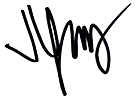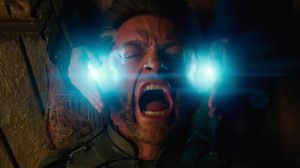You know a little something about continuity, don't you? It's kind of your job. For comic books fans, though, continuity is religion. Holy wars have been waged over divergent interpretations of what happened when, to whom, and its repercussions. The study of this foundational doctrine has even spawned its own taxonomy--words like "retcon", a compound verb (short for "retroactive continuity") that denotes "the alteration of previously established facts."
In the world of four-color superhero stories, continuity represents a consistency in the people and places central to the fictional universe in which they take place. On the set of a film, however, it all occurs on a smaller scale; what matters most is consistency from one scene to the next, one shot to the next. It's all about slates, axes, and eye-lines.
But in the age of the franchised blockbuster, when sequels are green-lit three at a time, and those sequels are broken into sub-chapters, and all of those films bleed into one another with shared characters and post-credits stingers, the cosmic-scale of continuity common in the funnybooks is becoming increasingly relevant to cinema. And nowhere is that more relevant than in Days of Future Past. After six previous films, the cinematic universe of the X-Men has become broad enough, both in scope and in quality, to enfold upon and cross-reference itself in the exact same way that comic books do.
"Days of Future Past" is considered a seminal meta-text of X-Men continuity--meta because the narrative itself hinges upon the idea of retroactive continuity. The story here is the sort of prototypical time-travel premise tackled by everything from Star Trek to The Terminator: change a thing in the past to prevent a cataclysmic future. As it occurs in the comics, it's a surprisingly short chapter of the mutant mythos, taking place over the course of only two issues (though writer Chris Claremont, the man often credited with rescuing the X-Men from obscurity in the mid-70s by dialing up the teenage melodrama, is famously able to cram a whole lot of story into a single issue/page/panel). And while X-Men comics are notorious for their knotty continuity and reliance on time-travel as a corrective device - a current story-arc even has the teenage X-Men from the past living in the present among their grown-up counterparts - "Days of Future Past" remains one of the most beloved comic book stories of all time.
No surprise, then, that as movie studios delve ever deeper into the most obscure corners of a franchise's mythology, that they should pick out this particular tale. And as a framework for knitting together the sprawling franchise - which has so far seen a trilogy, two spin-offs, and a pre-boot (more taxonomy: "prequel" + "reboot") - it's perfect.
The story of the film is built from familiar narrative bits: the aforementioned time-travel trope, a Matrix-like bouncing back-and-forth between the vibrant real world and a blue-tinged dystopia, and a heist film's get-the-band-back-together recruitment scenes. The great achievement is how director Bryan Singer and his screenwriters (a team-up between the writers of X-Men: The Last Stand and X-Men: First Class) are able to keep the film from becoming choked by its own pretensions. One could theoretically watch this film without any prior knowledge of the characters or previous films and still understand exactly what's happening (though who's to say if they'd enjoy it with the same childlike satisfaction that I did).
Credit to the filmmakers, too, that they held true to continuity by not recasting the minor roles: Daniel Cudmore returns as Colossus, Shawn Ashmore as Iceman. Surely there were hipper, younger actors ready and willing to take their places, but instead we get the ubiquity of seeing familiar faces return (even if just in fleeting glimpses, like Kelsey Grammar and Anna Paquin) and the satisfaction of knowing that our time spent getting to know these characters all those years ago was, in this very minor way, worthwhile.
But this new flick is more than just an opportunity to mash up the cast of the original series with their First Class counterparts. John Ottman returns to score the film, and brings back the themes and motifs he wrote and arranged for X2: X-Men United. Newton Thomas Siegel is back behind the camera, Louise Mingenbach is once again designing the costumes. This continuity in the crew gives the film an aesthetic continuity, too. Days of Future Past looks and feels like an X-Men film in a manner that the other offshoots (including the much-despised third installment) don't: it's the difference between following your grandma's recipe and eating your grandma's authentic home cooking.
Intermixed with these familiar elements is a fresh sense of what a superhero movie can be. As the gritty reboot becomes de rigeur for comic book flicks - reaching (hopefully) its nadir with last year's_ Man of Steel__ _- what makes Marvel Comics properties unique amongst other adaptations is that they embrace the inherent absurdity of costumed heroes running around in the real world. Singer continues the streak here, which seems a particularly notable achievement considering the themes of persecutions and genocide that run just beneath the surface.
The funniest and most thrilling sequence of the film involves a character who - speaking of continuity issues - is shared between Marvel franchises at different studios: Quicksilver. He's a speedy teenaged mutant recruited to help bust young Magneto out of prison, and I'm not even sure even the great Joss Whedon will find a way to surpass his joyous, Buster Keaton-esque appearance here. In this age when anything imaginable can be expressed onscreen, I can't recall the last time that an audience applauded after an action sequence. They clapped long and loud after this one.
In the mid-80s, in order to correct its overlapping and contradictory continuity,
DC Comics famously annihilated much of its golden age history in Crisis on Infinite Earths. Filmmakers, faced with untying the narrative knots left by their predecessors, often to do the same thing. Which is why X-Men: Days of Future Past is so satisfying. You and the rest of the filmmakers took everything that worked and found a way to make it work better. The result: not just the best of all the X-Men films, but one of the best summer blockbusters of the last decade. As you know, it's just the sort of reward a respect for continuity can grant you.
Sincerely,

Jared







